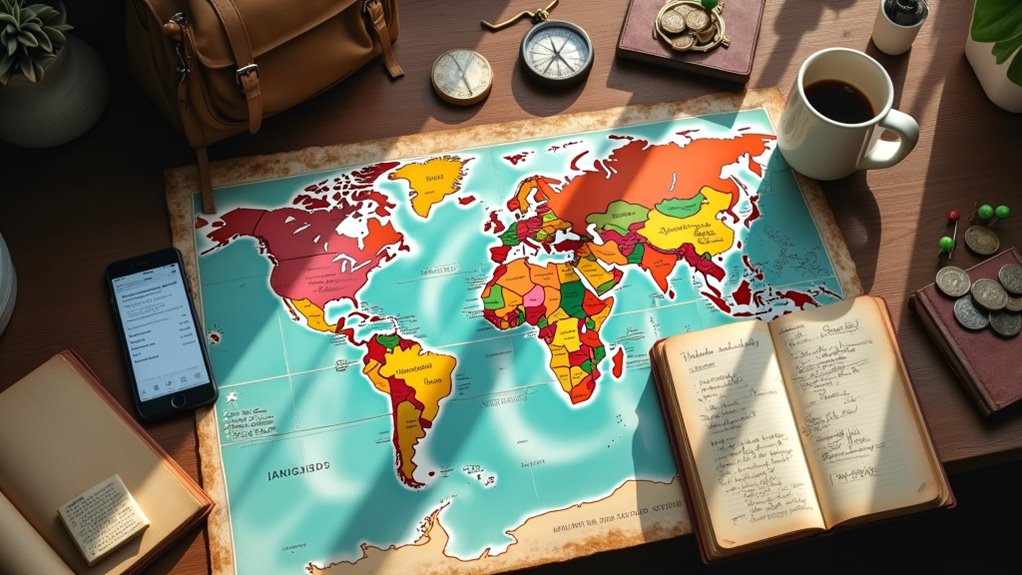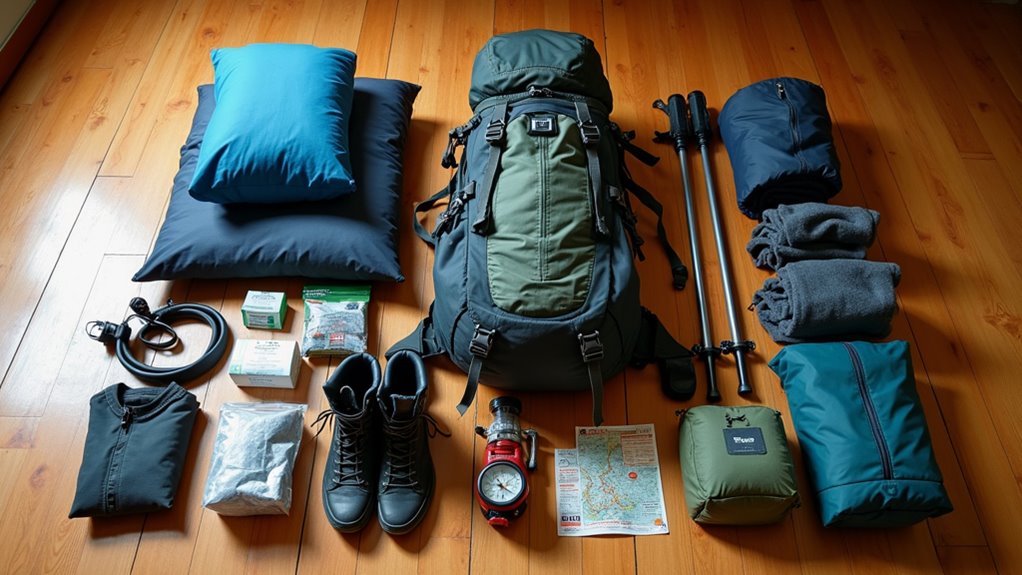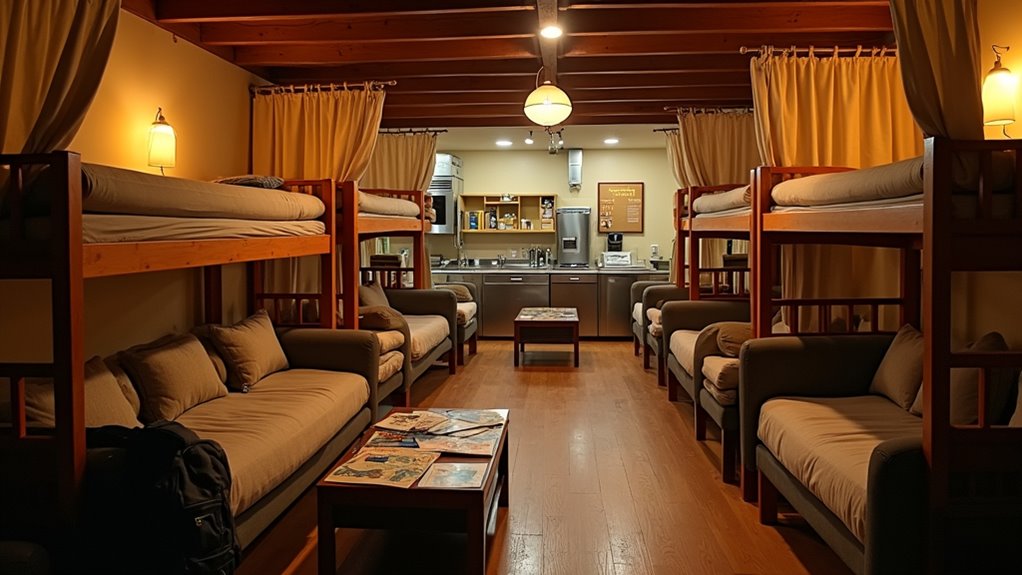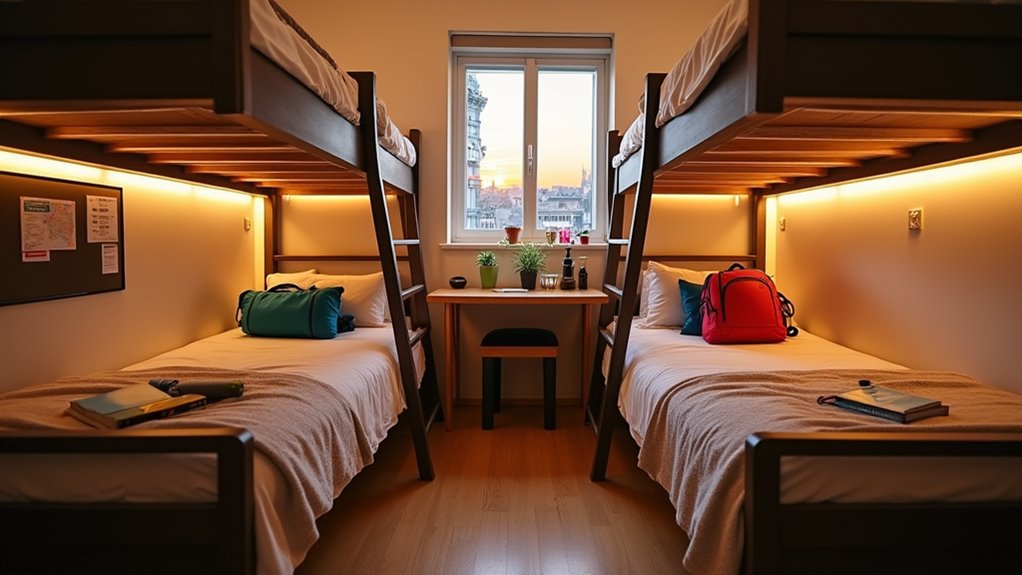To plan travelling around the world on a budget, start by researching destinations with lower costs of living and set price alerts for flights to track fare drops. Book flights and accommodations early, travel during off-peak seasons, and use fare comparison tools to secure deals. Opt for hostels, homestays, or budget hotels, and use public transportation to minimize costs. Allocate 10–15% of your budget for emergencies so you’re prepared. There are further strategies to optimize your travel finances.
When you want to see the world without exceeding your financial limits, planning your travels on a budget requires careful research, strategic booking, and disciplined money management.
Begin by planning early, as this gives you access to discounted rates for both flights and accommodations. Establishing a budget helps in planning other details, so determine your overall spending limit before making bookings or purchases. You should use fare comparison tools like Google Flights’ Explore map and set price alerts to track fluctuations, ensuring you book tickets when prices dip.
Start planning early and use fare comparison tools to grab the best deals on flights and accommodations as prices drop.
When choosing destinations, prioritize places with a lower cost of living and affordable or free attractions, such as national parks. One important strategy is to go where it’s cheap — not where it’s trendy, which can significantly lower your overall travel expenses. Develop a detailed budget that covers every aspect—transportation, lodging, food, and activities—and use budgeting apps to track daily expenses, helping you avoid costly surprises.
For booking flights, aim for midweek departures, specifically on Tuesdays or Wednesdays, and travel during off-peak seasons to secure the lowest fares. Always compare prices across multiple booking platforms and leverage reward points or loyalty programs to save more.
Opting for budget airlines and restricting yourself to hand luggage helps you avoid extra baggage fees. Booking accommodations with kitchen access allows you to prepare meals, reducing food costs. Consider overnight trains or buses, as these save you one night’s lodging expense and maximize your travel time.
Use public transportation instead of taxis or rental cars whenever possible, as it’s usually much more cost-effective. Purchase multi-day city passes for unlimited rides, and cover short distances by walking or biking, which not only saves money but lets you explore your surroundings more intimately.
For longer journeys, intercity buses or trains are typically the cheapest options, and ride-sharing services can further cut transportation costs through carpooling.
Affordable lodging options include hostels, guesthouses, and budget hotels. Homestay platforms and house-sitting opportunities can sometimes provide free accommodation. Camping in national parks or booking all-inclusive packages can also help you stay within budget.
Always check for long-term stay discounts with local rentals if you plan to stay in one place for a while.
Sticking to local markets and street vendors helps you cut food expenses, while city passes or student IDs can lower entry fees for attractions. Keep itineraries flexible, allocate 10–15% for emergencies, and monitor currency rates to make your funds go further.









